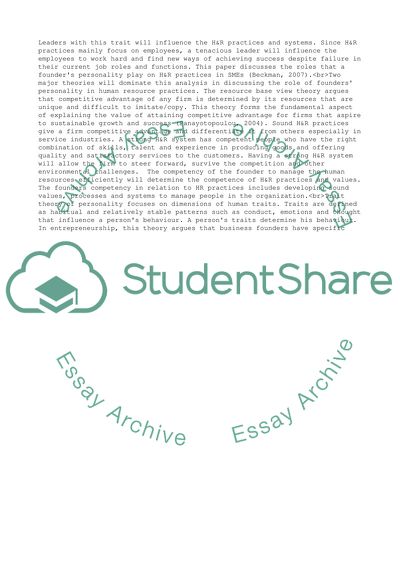Cite this document
(Discuss the role of the founders personality for H&R practices in SMEs Essay, n.d.)
Discuss the role of the founders personality for H&R practices in SMEs Essay. https://studentshare.org/human-resources/1864203-discuss-the-role-of-the-founders-personality-for-hr-practices-in-smes
Discuss the role of the founders personality for H&R practices in SMEs Essay. https://studentshare.org/human-resources/1864203-discuss-the-role-of-the-founders-personality-for-hr-practices-in-smes
(Discuss the Role of the Founders Personality for H&R Practices in SMEs Essay)
Discuss the Role of the Founders Personality for H&R Practices in SMEs Essay. https://studentshare.org/human-resources/1864203-discuss-the-role-of-the-founders-personality-for-hr-practices-in-smes.
Discuss the Role of the Founders Personality for H&R Practices in SMEs Essay. https://studentshare.org/human-resources/1864203-discuss-the-role-of-the-founders-personality-for-hr-practices-in-smes.
“Discuss the Role of the Founders Personality for H&R Practices in SMEs Essay”. https://studentshare.org/human-resources/1864203-discuss-the-role-of-the-founders-personality-for-hr-practices-in-smes.


